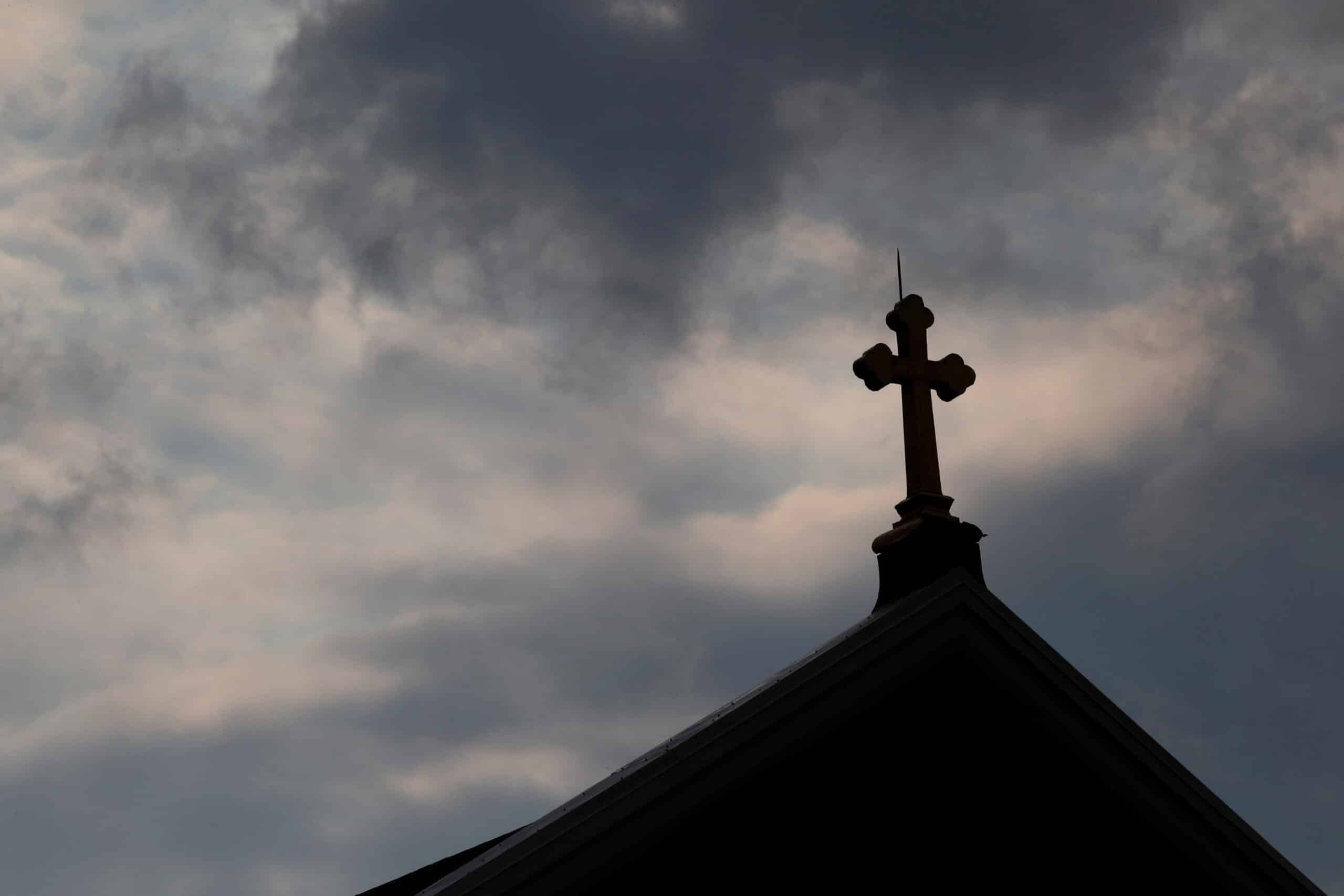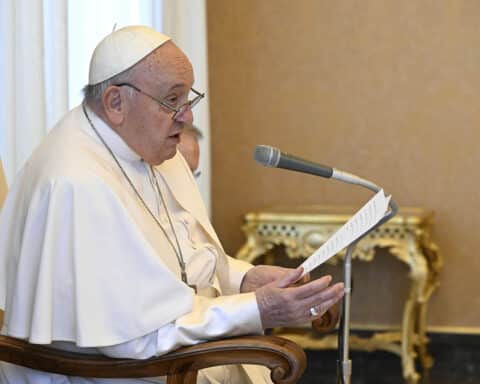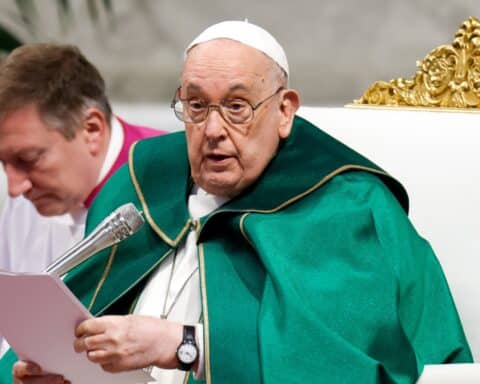
— John Waters, via email
Answer: No, “atheist” is too broad a term to consider them all as enemies of the Faith; distinctions are in order. Some are atheists because of a painful experience with suffering or evil, and they cannot imagine a God who permits such things. Others are atheist because their need for certainty, or to believe on their own terms, has led them to conclude that there is no one at the other end of the line. They want to believe but will not or cannot because some particular evidence they seek or demand is not forthcoming. Still others are atheists because the existence of God is not convenient to their moral life or their autonomy. But they mainly want to be left alone.
Finally, there are some atheists who do militantly oppose the Faith and seek to limit its influence and dissuade others from believing. In our culture they are sometimes called atheists, and sometimes they are called secularists. Their goal is to marginalize the Faith and those who practice it. Indeed, some would go further and seek to criminalize the Faith as a form of “hate,” because the faithful do not approve of a range of behaviors the Scriptures call sinful. It is this last group where we likely find enemies of the Faith. They oppose us in the courts and the public square and often misrepresent or exaggerate our beliefs or history. They seek our diminishment and ultimately our disappearance. As such, they are enemies to us since enemies are defined as a person (or group) who feels hatred for, or fosters harmful designs against, or engages in antagonistic activities against an adversary or opponent.
To be fair, there are also believers who could be seen as enemies of the Faith. Some believe in God or other gods and faith traditions, but not the God of the Scriptures or the Faith he reveals. Even within Christianity, some Christians oppose and have been enemies to one another. There have been many religious wars in Christian Europe. Saddest of all, there are those within the Catholic Church who prove to be enemies of the Faith. They do so by engaging in active and public dissent against Biblical and Church teaching. Most egregious are those dissenters who are also clergy and can cause great harm to the Faith and moral life of the faithful.
In terms of spiritual warfare, we must resist and often actively oppose enemies of the Faith, but we must not cease to love them and pray for their conversion. St. Paul reminds us, “For our struggle is not with flesh and blood but with the principalities, with the powers, with the world rulers of this present darkness, with the evil spirits in the heavens” (Eph 6:12). In other words, our truest enemy is Satan, not fellow human beings. Sadly, some of our kin have been lost to the powers of darkness and worldly lies, but we must resist their actions and correct their errors in love so as to possibly save them and others from their effects.
So we are at war, but our warfare is waged in love rather than hate and destruction of others. Since you mention St. Michael, it is worth recalling that the sword he bears is not steel, but the sword is the Word of God (cf. Eph 6:17).
Biblical history
Question: I was surprised to learn at a Catholic college that the Bible’s historicity is debated and that one of my professors was rather dubious of many events, such as the Exodus or the place and date of Jesus’ birth. What do you think?
— Sean Richards, via email
Answer: During the past 150 years, there have been many doubts cast on the historical reliability of the Scriptures. Some went so far as to dismiss nearly the whole of the Bible as a collection of fables and heroic tales. During this same period, however, modern archeology and historical research has confirmed much of the historical reliability of the Scriptures. The sites of ancient cities and battles, once called fictional, have now been found. Other manuscripts of ancient civilizations have also helped to confirm Biblical details or at least make them plausible and debatable. It is sad that your professor has not included the most recent research on such matters.
Msgr. Charles Pope is the pastor of Holy Comforter-St. Cyprian in Washington, D.C., and writes for the Archdiocese of Washington, D.C. at blog.adw.org. Send questions to msgrpope@osv.com.





